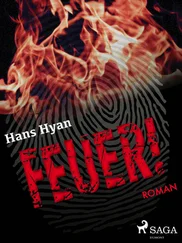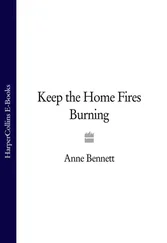Running down, she caught Hira’s arm and pulled her out of the backdoor entrance, ducking her head against the hail. All along the redbrick building, end to end, icicles hung from the eaves, a foot or more in length. Against these broadswords, pellets rained down and made music. The acoustics of ice on ice, a thing unimaginable until experienced.
Pain swerved at her then, physical, bringing her to her knees. Hira moved toward her but Isma held up a hand, lay back in the snow, and allowed the pain to roil through her while the hail and icicles continued their synthetic-edged symphony. Parvaiz, a boy never seen without his headphones and a mic, would have lain out here for as long as the song continued, the wet of snow seeping through his clothes, the thud of hail beating down on him, uncaring of anything except capturing something previously unheard, eyes hazy with pleasure.
That had been the only time she had truly, purely missed her brother without adjectives such as “ungrateful” and “selfish” slicing through the feeling of loss. Now she looked at his name on the screen, her mouth forming prayers to keep Aneeka from logging on, the adjectives thick in her mind. Aneeka must learn to think of him as lost forever. It was possible to do this with someone you loved, Isma had learned that early on. But you could learn it only if there was a complete vacuum where the other person had been.
His name vanished from the screen. She touched her shoulder, muscles knotted beneath the skin. Pressed down, and knew what it was to be without family; no one’s hands but your own to minister to your suffering. We’ll be in touch all the time, she and Aneeka had said to each other in the weeks before she had left. But “touch” was the one thing modern technology didn’t allow, and without it she and her sister had lost something vital to their way of being together. Touch was where it had started with them — as an infant, Aneeka was bathed and changed and fed and rocked to sleep by her grandmother and nine-year-old sister while Parvaiz, the weaker, sicklier twin, was the one who suckled at their mother’s breast (she produced only enough milk for one) and cried unless she was the one to tend to him. When the twins grew older and formed their own self-enclosed universe, there was less and less Aneeka needed from Isma, but even so, there remained a physical closeness — Parvaiz was the person Aneeka talked to about all her griefs and worries, but it was Isma she came to for an embrace, or a hand to rub her back, or a body to curl up against on the sofa. And when the burden of the universe seemed too great for Isma to bear — particularly in those early days after their grandmother and mother had died within the space of a year, leaving Isma to parent and provide for two grief-struck twelve-year-olds — it was Aneeka who would place her hands on her sister’s shoulders and massage away the ache.
Clicking her tongue against her teeth in remonstration of her self-pity, Isma pulled up the essay she was writing and returned to the refuge of work.
||||||||||||||||||
By midafternoon the temperature had passed the 50 degree Fahrenheit mark, which sounded, and felt, far warmer than 11 degrees Celsius, and a bout of spring madness had largely emptied the café basement. Isma tilted her post-lunch mug of coffee toward herself, touched the tip of her finger to the liquid, considered how much of a faux pas it might be to ask to have it microwaved. She had just decided she would risk the opprobrium when the door opened and the scent of cigarettes curled in from the smoking area outside, followed by a young man of startling looks.
His looks weren’t startling because they were exceptional — thick dark hair, milky-tea skin, well-proportioned features, good height, nice shoulders. Stand on any street corner in Wembley long enough and you’d see a version of this, though rarely attached to such an air of privilege. No, what was startling was the stomach-turning familiarity of the man’s features.
In her uncle’s house — not an uncle by blood or even affection, merely by the habitual nature of his presence in her family’s life — there was a photograph from the 1970s of a neighborhood cricket team posing with a trophy; it was a photograph Isma had sometimes stopped to look at as a child, wondering at the contrast between the glorious, swaggering boys and the unprepossessing middle-aged men they’d grown into. It was really only the ones she knew as middle-aged men she paid much attention to, and so she’d never given particular thought to the unsmiling one in the badly fitting clothes until the day her grandmother stood in front of the picture and said, “Shameless!” poking her finger at the young man.
“Oh yes, the new MP,” the uncle said, coming to see what had drawn out a pronouncement of such uncharacteristic venom. “On the day of the final we were a player short and this one, Mr. Serious, was visiting his cousin, our wicketkeeper, so we said, Okay, you play for us, and gave him our injured batsman’s uniform. Did nothing all match except drop a catch, and then ended up holding the trophy in this official photograph, which went into the local newspaper. We were just being polite to offer it to him, since he was an outsider, and only because we were sure he’d have enough manners to say thanks but the captain — that was me — should be the one to hold it. We should have known then he would grow up to be a politician. Twenty pounds says he has it framed on his wall and tells everyone he was man-of-the-match.”
Later that day, Isma overheard her grandmother talking to her best friend and neighbor, Aunty Naseem, and learned the real reason for that “Shameless!” It was not the unsmiling one’s choice of career but a cruelty he’d recently shown to their family when it would have been easy for him to act otherwise. In the years after that, she’d paid close attention to him — the only one in the picture to grow up slim and sharp, bigger and brighter trophies forever in his sights. And now here he was, walking across the café floor — not the hated-admired figure he’d grown into but a slightly older version of the boy posing with the team, except his hair floppier and his expression more open. This must be, had to be, the son. She’d seen a photo that included him as well, but he’d ducked his head so that the floppy hair obscured his features — she’d wondered then whether that was by design. Eamonn, that was his name. How they’d laughed in Wembley when the newspaper article accompanying the family picture revealed this detail. An Irish spelling to disguise a Muslim name—“Ayman” become “Eamonn” so that people would know the father had integrated. (His Irish-American wife was seen as another indicator of this integrationist posing rather than an explanation for the son’s name.)
The son was standing at the counter, in blue jeans and a quilted olive-green jacket, waiting.
She stood up, mug in hand, and walked over to him. “They only open up this counter when it’s busy.”
“Thanks. Kind of you to say. Where is—?” His vowels unashamedly posh where she had expected the more class-obscuring London accent of his father.
“Upstairs. I’ll show you. I mean, I’m sure you understand ‘upstairs.’ I should have said, I’m going there myself. Coffee’s cold.” Why so many words?
He took the mug from her hand with unexpected familiarity. “Allow me. As thanks for rescuing me from being the Englishman Who Stood at the Counter for All Eternity. Who you could be forgiven for confusing with the Englishman Who Gets Lost Going Upstairs.”
“I just want it heated up.”
“Right you are.” He sniffed the contents of the mug, another overfamiliar gesture. “Smells amazing. What is it? I wouldn’t know an Ethiopian from a Colombian if…” He stopped. “That sentence doesn’t know where to go from there.”
Читать дальше












